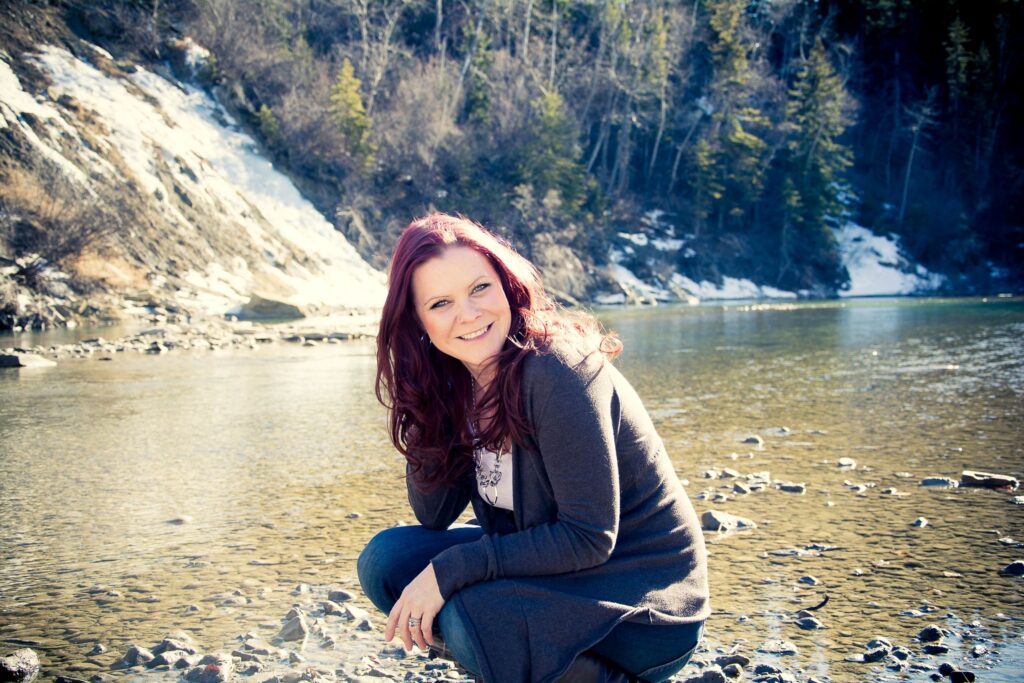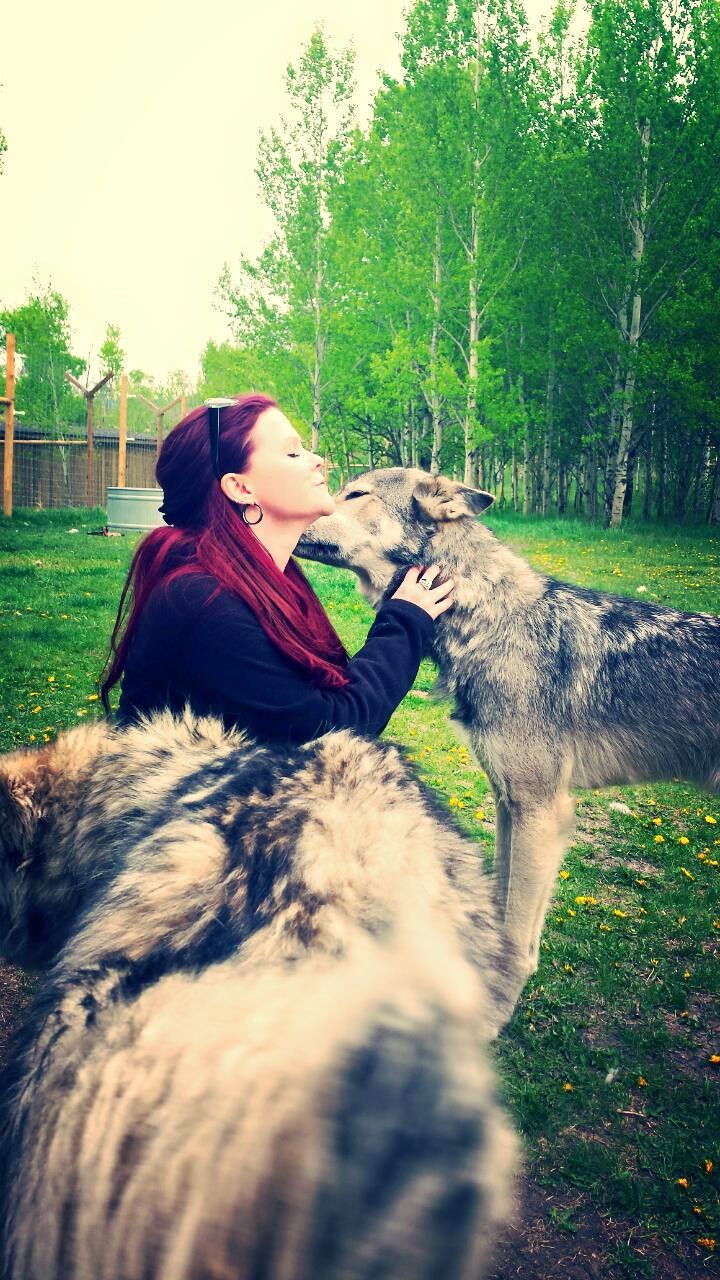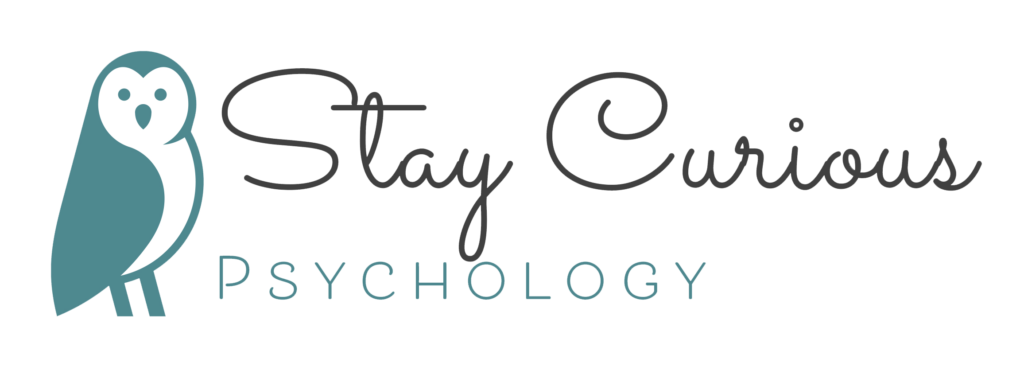About
Welcome
Meet Dr. Jenn (she/her), owner of Stay Curious Psychology
I’ve been working in the human services field for over 25 years and within the counselling field specifically for over 15 years. I started my education back in 2000 with a Bachelor of Arts in Psychology, and later graduated with a master’s degree in Counselling Psychology. As a lifelong learner, I pursued a PhD in Community Health Sciences, which led me into teaching, mentoring and research both locally and globally.

I am Registered Psychologist in Alberta, have a certificate in advanced supervision and training in Hakomi, a mindfulness – centered somatic psychotherapy , Sensorimotor Psychotherapy Treatment for Trauma, Eye Movement Desensitization and Reprocessing ( EMDR) and working on a Sexual Health Certification through University of Alberta. In addition to private practice, I provide clinical supervision, teach with Athabasca University, and conduct research at the University of Calgary.
I can provide online and in person therapy to Alberta residents and online therapy to Nova Scotia and Yukon residents.
What drew me to this work? Since I was little I have loved books. I loved escaping and expanding my knowledge through stories. As I grew older, this evolved into a desire to hear and be witness to people’s stories and learn to support them with their challenges.
Our stories have power, and I know personally, vulnerability can be a companion in the process of sharing our stories. My own struggles have impacted my decisions along the years. I try to be open and honest about these experiences and I want to be part of the solution – part of breaking the stigma around mental health struggles.
I enjoy helping people create better care of themselves through setting boundaries, increasing body-mind awareness, increasing regulation skills and decreasing distress. I am a human first – so I mess up, make mistakes and welcome feedback. I tend to be honest and am open about the fact I experience anxiety (yeah pretty bad at times) and manage life with ADD and chronic pain/conditions.
Personal Interests
I love love love my old senior dogs and all animals really! I have spent a lot of time volunteering in animal rescue and love visiting any type of animal sanctuary. I enjoy reading and am drawn to the darker, spookier sides of literature, as well as collecting old books. I enjoy eating out, hiking, traveling and yes, love being cozy and watching mindless shows and thrillers.
In the midst of winter, I found there was, within me, an invincible summer. And that makes me happy. For it says that no matter how hard the world pushes against me, within me, there’s something stronger – something better, pushing right back. ~ Camus ~

Areas of experience
Trauma and Mind-body Work
Trauma is not what happens to you. Trauma is what happens inside you a result of what happens to you (Dr. Gabor Mate)
A mind body approach to counselling takes into account that trauma can have a physical and emotional effect on the person. Trauma can create disruptions in the nervous system, causing changes in how the body processes stress and responds to life experiences. This can result in a variety of physical symptoms such as pain, fatigue and digestive issues. Trauma can also affect mental health causing symptoms such as anxiety, lack of concentration, depression or hypervigilance.
Somatic or mind-body approach is a part talk – part observation and there is focus on the interconnectedness between mind and body. Commonly used techniques include: Hakomi techniques, breathwork, body-centered mindfulness, regulation skills, EMDR, emotional freedom technique, movement, inner child and parts work.
Through these techniques individuals may access and release tension, trauma and emotional blocks stored in body and mind. Individuals can become more aware of their body, thoughts and emotions and learn to process them in a safe and supportive manner.
“We have learned that trauma is not just an event that took place sometime in the past; it is also the imprint left by that experience on mind, brain, and body. This imprint has ongoing consequences for how the human organism manages to survive in the present.” (Bessel van der Kolk)

The body remembers, the bones remember, the joints remember, even the little finger remembers. Memory is lodged in pictures and feelings in the cells themselves. Like a sponge filled with water, anywhere the flesh is pressed, wrung, even touched lightly, a memory may flow out in a stream.
Clarissa Pinkola Estes

Disability Work
I’ve worked in the disability field since 1998 and gained experience in a variety of roles including, front line work, program management, clinician, research and providing services to children with disabilities and their families through my company Kindred Kids. Kindred Kids operated for over 12 years in Edmonton and Calgary. While Kindred Kids is winding down operations with clinical front facing work with children, I still continue to consult with parents, teachers/schools and supervise provisional psychologist who work with children with disabilities.
My history with working in disability field led me to purse a PhD in Community Rehabilitation and Disability Studies. I was drawn to the social justice component of the program and have spent the last ten years being part of research projects including: fathering and autism, dismantling normative expectations of play for children with autism, autonomy and decision making for adults with developmental disabilities, disability and transportation, workplace mental health, and experiences of persons with spinal cord injury.
